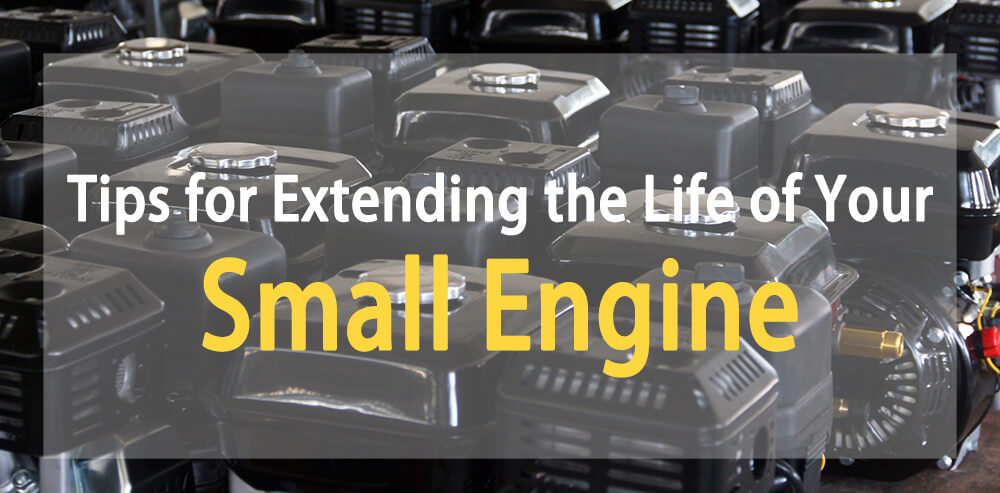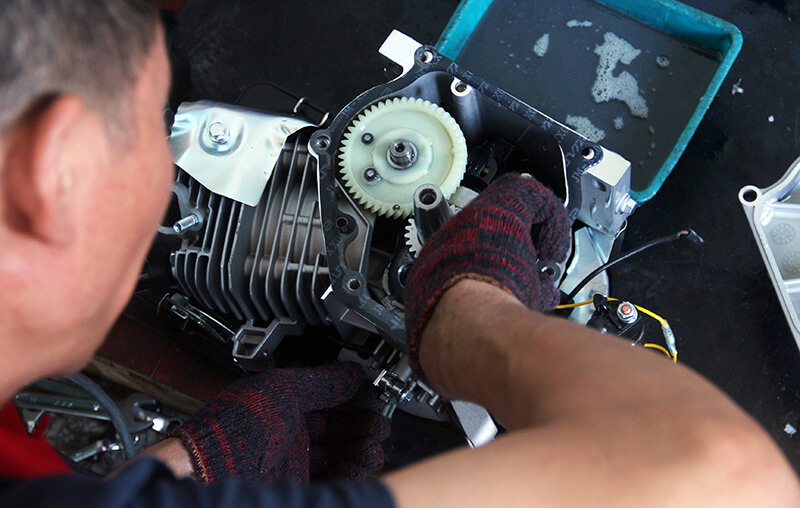25Oct 2024
table of contents

Small engines power many tools like plate compactors, generators and chainsaws. Despite their rugged design, these engines often fail prematurely. Due to skipping regular upkeep, using subpar fuel and storing them improperly can cause overheating, rust and wear.
In this article, BISON covers crucial tips for prolonging your small engine's life. You'll discover the significance of routine oil checks, cleanliness, correct operation and proper storage methods. Adhering to these tips will help keep your small engine dependable and efficient for future.
Read on to learn how easy steps can significantly improve small engine's performance and longevity, saving you time, money and hassle in the long run.
Keep your small engine running smoothly for years with these essential maintenance tips:
It's crucial to regularly check and replace oil in small engines. Always use the manufacturer-recommended oil type and follow their oil change schedule, often after every 25 hours of use. Check your engine's manual for precise intervals. Keep an eye on oil levels and look out for signs of old oil, such as a burnt smell or unusual color. Running a small engine with low oil levels or poor quality oil can cause serious damage.
Keeping your small engine clean is crucial for peak performance and durability. Remove debris like grass, leaves and mud regularly. Such accumulations can restrict airflow, causing overheating and early wear, which may result in expensive repairs.
Proper operating techniques can significantly affect the life of a small engine.
Warm up Period: Warm up your small engine before use to allow oil to circulate well and the components to reach correct operating temperature. Allow the small engine to idle for several minutes before starting any heavy work.
Load Management: Overloading a small engine puts unnecessary stress on its components, which can lead to overheating and mechanical failure. Always match the power capacity of a small engine to the task at hand. Using the appropriate small engine for a specific operation reduces stress and extends its life.
Idle Time: Refrain from letting your small engine idle for extended periods. Extended idling may create unburned fuel buildup, reducing performance. Shut off your engine when not in use to prevent wear and conserve fuel.
Proper storage is critical, especially for seasonal equipment.
For winter storage, empty the fuel or add a fuel stabilizer, change the oil, and clean the engine thoroughly. During extended storage, keep your small engine in a clean, dry place to avoid rust and corrosion. Always cover it to shield from dust and moisture.
Always consult and follow your small engine manual. The manual provides specific maintenance schedules, operating guidelines and troubleshooting tips tailored to your small engine.
Using the right replacement parts is critical to maintaining the integrity of your small engine.
Make sure all replacement parts are compatible with your specific small engine model. Generic or incompatible parts can cause malfunctions. Invest in high quality parts to guarantee optimal performance and longevity.

Proper care of your small engine involves thorough maintenance, careful operation, and wise storage. Regularly check and change the oil, keep engine clean, and manage warm-up and load correctly. Avoid excessive idling, store engine properly, consult the manual and select appropriate replacement parts. These actions reduce repair costs and ensure peak engine performance. A properly maintained engine is a reliable engine.
If you seek more reliability and longevity from your small engine, choose BISON for your engine requirements. BISON small engines are engineered for durability and performance, with advanced technology and rugged design to withstand rigorous use. Explore BISON's small engine lineup and see the difference for yourself!
inquiry form here
BISON BLOG, All the latest news and views from Bison Machinery.